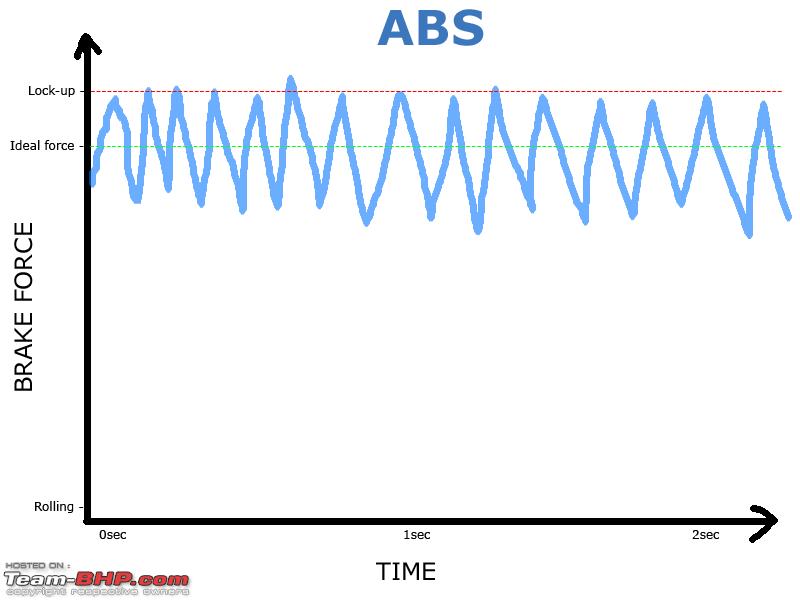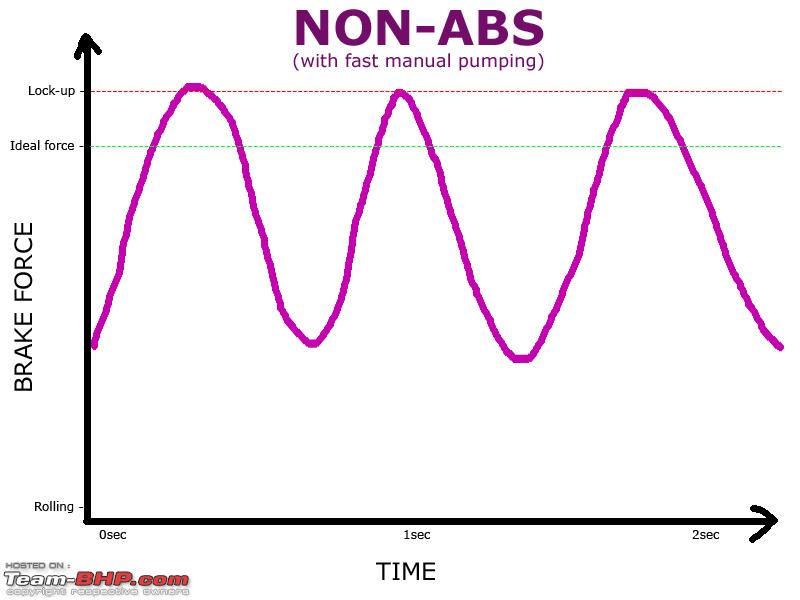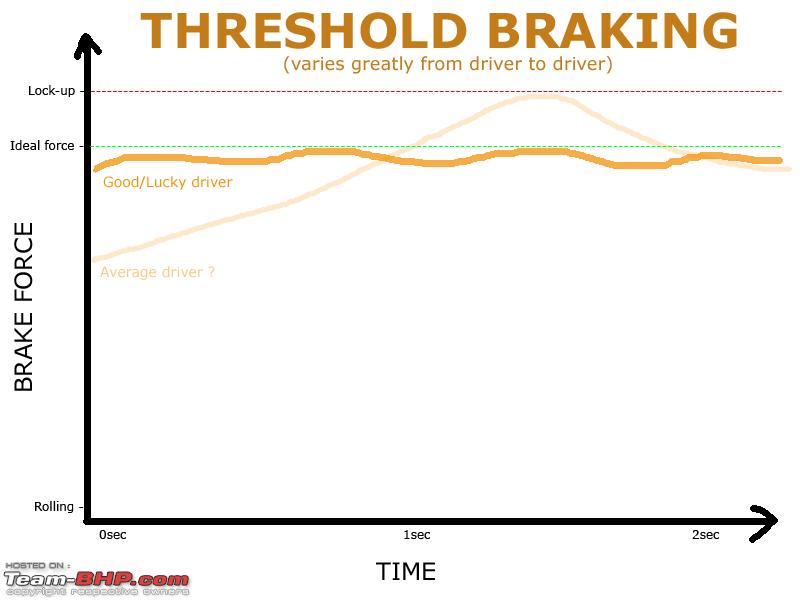|
Quote:
Originally Posted by adnaps  .... by pumping and releasing the brakes manually , you would actually end up applying the brakes for a shorter period of time and thereby increasing the stopping distance. |
Yes! (This ofcourse depends on how fast you pump, and to what extent you pump).
Have thrown together some el cheapo graphs to help explain this further :
(Note - these figures and relative comparisons are all abstract (aka incorrect) - they are just to illustrate the concepts) 
Here you can see that the ABS system comes close to the "perfect" brake-force so many times a second. 
"Pumping" manages the same thing, but only a few times a second (at best) and therefore a LOT more time is spent far away from the ideal braking zone - making it a lot longer of a stop if you pump.
(Note - frequency of pumping and extent of pumping play a role here)
I would not reccomend this in typical driving conditions.
It might help in conditions like snow / gravel where you also require steering input. 
Threshold braking relies on your stig-like abilities to keep the wheels spinning at the point where the tyres have good traction and there is max retardation of speed.
If you're average at this - you will probably do better than pumping, but not as good as ABS.
If youre good (or lucky) at this, you can get good results, perhaps equalling or trumping ABS (unlikely bestcase).
However, its not quite as easy as this graph makes it look!! 
Above it just seems like there is a constant brake force being applied, (so simple right? Blame my graph for making it look so easy!) but in reality the brake pressure changes as there are a lot more variables (eg. changing coefficient of friction of the brakepads depending on the speed of the wheel / brake disc, similarly changing friction between the tyre and the road, etc).
cya
R
Last edited by Rehaan : 18th January 2010 at 17:24.
| 











